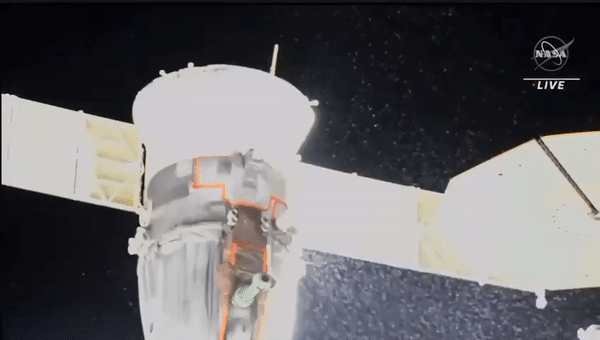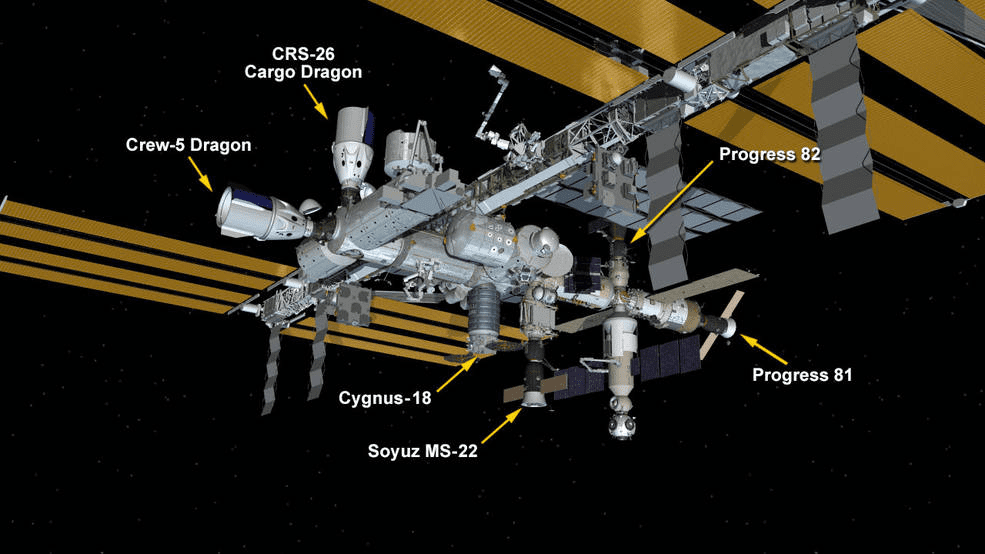Tensions on Earth have had an impact in space, with the July announcement that Russia will cease involvement with the International Space Station (ISS) after 2024. In the meantime, however, cooperation continues, and when the Soyuz spacecraft docked to the ISS sprang a leak last week, astronauts from all nations on board went to work to find the problem.
A NASA blog post reports the spacecraft was examined using cameras on the Canadarm2 robotic arm. “A small hole was observed, and the surface of the radiator around the hole showed discoloration. Roscosmos is evaluating the imagery to determine if this hole could have resulted from micrometeoroid debris,” the post reports.
The spacecraft carried Russian cosmonauts Sergey Prokopeyev and Dmitri Petelin into space three months ago, along with NASA’s Frank Rubio. On December 14, pressure sensors in the external cooling loop showed low readings, indicating cooling fluid was leaking. The following day it became apparent the spacecraft had lost the majority of its coolant, causing the postponement of a spacewalk by the two cosmonauts lest they be exposed to the leaking coolant.

The loss of coolant from the Soyuz wasn’t exactly subtle. Image Credit: NASA
The spacecraft has remained useable, despite the leak, with temperatures and humidity considered tolerable. A delayed US spacewalk was planned to go ahead today so Rubio and Josh Cassada could install extra solar panels now the lost coolant will have long since dispersed, but has been postponed after a close encounter with space junk was predicted.

The major components of the ISS, including the Soyuz MS-22 while it is docked there. Image credit: NASA
As the saying goes, “space is constantly trying to kill you,” so while a micrometeorite strike from the Geminid meteor shower is the favored explanation for the cause of the hole, it’s not the only one. A piece of the ever-growing supply of human-produced space-junk in low orbit, too small to be tracked from the ground, is another possibility.
The MS-22 may be safe to inhabit, but returning to Earth could be a different matter – if you think space is trying to kill you, try entering the upper atmosphere at speed. Depending on the results of further testing, a replacement Soyuz may be launched to bring the trio of spacefarers home when their time on the ISS is done. Space.com reports it will take at least 45 days to prepare a replacement Soyuz craft.
It’s the first time the ISS has experience a leak of this magnitude, false alarms aside, although Canadarm2 itself suffered minor damage from space junk last year. However, Viktor Voropayev of the Keldysh Institute for Applied Mathematics noted a Russian telecoms satellite suffered a similar problem 20 years ago. “As a result, the spacecraft turned its antennae away from the Earth and was lost,” Voropayev told TASS.
Source Link: A Hole Has Been Found In Leaking Russian Spacecraft Docked With ISS